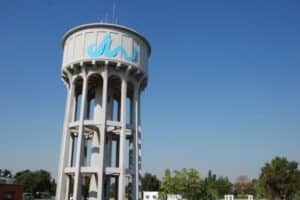Tshwane faces severe water shortages as reservoirs run critically low following a power failure at Zuikerbosch Water Treatment Plant.

Tshwane residents who have water were warned to use it sparingly after some reservoirs were reported empty or critically low, following a power trip at the Zuikerbosch Water Treatment Plant this week.
The current water shortages were just another drop in the bucket of water woes, as residents across Tshwane have been struggling with frequent water cuts the past few months, as the municipality and Rand Water passed the bucket of responsibility.
City of Tshwane spokesperson Lindela Mashigo has called on the residents to adopt water-saving measures to reduce high water consumption and avoid a total collapse of the system as reservoirs continue to run low.
Mashigo said the thunderstorm and power failure incidents occurred while the city’s and mainly Rand Water’s systems were under severe strain due to the current high water consumption.
“On Thursday, Rand Water informed the City of Tshwane about their Zuikerbosch Water Treatment Plant, which had experienced a power trip that affected production,” he said.
Mashigo said the disruptions in operations were due to severe thunderstorms on Tuesday night. “Attempts to restart the plant revealed faults along the overhead power lines supplying the plant,” said Mashigo.
“The power failure resulted in the loss in production of 2 000 million litres of water per day.”
This load reduction impacted all municipalities supplied by the Zuikerbosch – including the cities of Tshwane, Ekurhuleni and Johannesburg.
Mashigo said Tshwane reservoirs were currently not receiving any flow from Rand Water.
He said, as a result, Akasia, Bakenkop, Blair Athol, Brakfontein, Carina Street Reservoir, Corobrick Plant, Erasmia, Hatherley meter, Klapperkop, Kosmosdal Connection, Laudium, Atteridgeville HL, Lotus Gardens, Louwlardia, Mabopane, Magaliesberg, Mnandi, Raslouw, Rooihuiskraal, Saulsville, Soshanguve L, Sunderland Ridge and Wonderboom reservoirs were impacted.
However, water expert Prof Anja du Plessis said yesterday water utilities and municipalities should stop using consumers as scapegoats for water problems.
“They have ended up pointing fingers at each other, and now are pointing fingers at the consumers,” she said.
Du Plessis said the so-called water shortage has been happening for the past two years.
“We were sitting with the same issue last year in September and October, because it’s still dry. People are trying to revive their gardens, so the consumption does go up during this period,” she said.
“However, is that not the sole issue or cause for the perfect storm that Gauteng was sitting with once again?
“Rand Water reported that Zuikerbosch was offline due to a trip in electricity. What we should be asking is, do they have a backup pump and where it is?
“Last year it was only the high-lying areas, and the system recovered faster.”
Du Plessis said it wasn’t a case of consumers using too much water.
“Yes, there is a higher level of consumption but it’s not the sole cause. It is because of dilapidated water infrastructure, pipe bursts, leakages and two decades of neglect,” she said.
Du Plessis said 30% to 40% of water was lost before it reached the consumer due to leakages, pipe bursts and old, dilapidated infrastructure.
“Blaming the consumer is hiding behind the truth. This is not a new issue,” she said Du Plessis added that blaming the wind and the rain for the mess they were sitting in was hard to believe.
“What is the real problem?” she asked.
Support Local Journalism
Add The Citizen as a Preferred Source on Google and follow us on Google News to see more of our trusted reporting in Google News and Top Stories.






